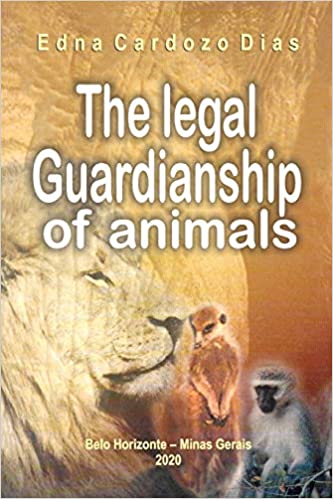Results
Displaying 5961 - 5970 of 6638
| Title | Citation | Alternate Citation | Summary | Type |
|---|---|---|---|---|
| Marine Mammals Issues | Policy | |||
| CA - Crimes - § 597. Cruelty to animals | West's Ann. Cal. Penal Code § 597 | CA PENAL § 597 | This statutes states that anyone who maliciously and intentionally maims, mutilates, tortures, or wounds a living animal, or maliciously and intentionally kills an animal, is guilty of an offense punishable by imprisonment in the state prison, or by a fine of not more than twenty thousand dollars ($ 20,000), or by both the fine and imprisonment, or, alternatively, by imprisonment in a county jail for not more than one year, or by a fine of not more than twenty thousand dollars ($ 20,000), or by both the fine and imprisonment. The statute also defines specific forms of torture and mistreatment that qualifies as a crime under this section. | Statute |
| Canada - British Columbia - Division 1 -- Regulation of Animals | R.S.B.C. 1996, c. 323, s. 702.1 - 707.1(10) |
This set of British Columbia, Canada laws addresses animal control. The provisions give the animal control board the authority to regulate loose animals and licensing of dogs. |
Statute | |
| The Legal Guardianship of Animals |
|
Policy | ||
| Additional Protocol to the European Convention for the Protection of Animals During International Transport | Amendments to the European Convention for the Protection of Animals During International Transport. The amendments are mainly procedural rather than substantive. | Treaty | ||
| AL - Public Nuisances - Chapter 10. Nuisances Menacing Public Health | Ala. Code 1975 § 22-10-1 to 3 | AL ST § 22-10-1 to 3 | This set of laws lists various animal-related actions and conditions that are considered nuisances per se because of their significant public health risks. In addition, it addresses the methods by which such nuisances may be abated, up to and including the destruction of property without compensation. | Statute |
| Animal Law Review Vol 12 Table of Contents |
|
Policy | ||
| Max Planck Institute for Comparative Public Law and International Law |
Biodiversity, Species Protection, and Animal Welfare Under International Law, Guillaume Futhazar, MPIL Research Paper Series No. 2018-22 (2018). |
Policy | ||
| Crossroads Apartments Associates v. LeBoo | 152 Misc.2d 830 (N.Y. 1991) | Landlord brought an eviction proceeding against tenant with a history of mental illness for possession of a cat in his rental unit in violation of a no pets policy. Tenant alleged that he needed the cat to alleviate his "intense feelings of loneliness, anxiety, and depression, which are daily manifestations of his mental illness." The court held that in order to prove that the pet is necessary for the tenant to use and enjoy the dwelling, he must prove "that he has an emotional and psychological dependence on the cat which requires him to keep the cat in the apartment." The court denied the housing authority's motion for summary judgment, stating that there was a triable issue of fact as to whether the cat was necessary for the tenant to use and enjoy the dwelling. | Case | |
| Dutka v. Cassady | 2012 WL 3641635 (Not Reported in A.3d) | 2012 Conn. Super. LEXIS 1901 | A rescue organization had adopted out a dog. The new owners were walking the dog unleashed when it attacked another dog. The plaintiff's filed a complaint of common law negligence and recklessness, which alleged that the rescue organization should have known and should have warned them of the dangerous tendencies of the specific dog but failed to do so. Connecticut law imposed strict liability on an owner or keeper of such an animal, and the statute had not been expanded to include the seller or transferor. The issue then was whether the court should expand the scope of such a negligence claim and create a duty of care owed by transferors or sellers of dogs with known and/or unknown propensities for aggression. The court found that there was no support for expanding liability in common law negligence when the organization in this case did not own, possess, harbor or control the dog. The court declines to impose a duty on the rescue agency to inform adoptive families. | Case |
